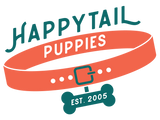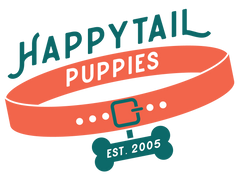Teacup Pomeranian Health: Key Considerations for Their Fragile Size and Newborn Care
Teacup Pomeranians require special care due to their small size, including frequent feedings, health monitoring, a safe environment, and regular vet visits for optimal growth.
Teacup Pomeranians are highly adorable little pups, with their tiny paws pitter-pattering throughout the floor with a fluffy ball of energy that zips through your living room. A truly awe-inspiring sight!
These miniature bundles of joy appear extremely delicate to the world around them. Irrespective of their magical presence and adorable personalities, their miniature sizes place them at huge risk of different health concerns. However, behind their delicately cute facade is a world of highly delicate care and targeted attention. The miniature marvels are extremely fragile as well as feisty, demanding more effort in terms of health and overall well-being. So, before you add them to your home, knowing about their distinct needs remains important. The responsibility of the pet parents is not limited to feeding or grooming their pups; it is about safeguarding their compact lives.
Unique Health Challenges of Teacup Pomeranians
The diminutive stature of the Teacup Pomeranian may appear adorable; however, it is like a double-edged sword. Their miniature sizes are so sought-after that they become prone to a series of health issues. Their systems are extremely delicate and need careful attention to ensure their life's quality and longevity.
Fragile Bones and Skeletal Issues
A teacup Pomeranian dog is also vulnerable to joint problems and fractures. A cool leap from the sofa or a clumsy bump can result in broken bones. Give them something softer to land on to prevent their high jumps. To ease joints, try using ladders or ramps to reach the higher points.
Another common issue is calcium deficiency, which makes bones fragile and increases the risk of fractures. You may also need supplements to nourish your Pomeranian, but only if advised by the vet. It's important to get a balanced diet full of bone-strengthening nutrients.
Heart Health Concerns
One of the highly pressing health disorders in a newborn teacup pomeranian puppy is heart disease. Due to their compact sizes, their hearts overwork, leading to the possibility of cardiac issues related to their aging. Proper health inspections and monitoring for symptoms like shortness of breath or fatigue are important.
Maintaining an optimal weight notably reduces the strain on their heart system. Feeding them premium food along with light exercise supports their heart health. Some gentle, short walk works wonders.
Hypoglycemia: A Life-Threatening Concern
Like more than a few types of small dog breeds, for example, the Teacup Maltese, Poms have a very quick metabolism, breaking vitality very quickly, making them vulnerable to low blood sugar content. The result is low blood sugar, “hypoglycemia,” which causes shakiness, weakness , and seizures.
If the symptoms increase, owners ought to be prepared to give them smaller doses of corn syrup or honey before rushing them to the vet. To stabilize their glucose levels, they eat small meals spread throughout the day.
Breathing Issues and Tracheal Collapse
Tracheal collapse is one of the most common conditions in small dog breeds like Teacup Pomeranians. Their windpipes stop working the way they once did, causing respiratory trouble and coughing. Using a harness instead of a collar is less stressful on the trachea and can help keep the airway healthy.
Limit their exposure to irritants such as smoke or excessive dust. With regular vet visits, we can help catch respiratory issues before they become severe.
Newborn Care: Ensuring Their Safety and Well-being
Adding a newborn teacup pomeranian puppy to your household is the best experience. However, their susceptibility to risk at birth needs special attention. Also, ensure that they are safe right from the moment they are born, which is important for their long-term development and health.
Creating a Safe Environment
The teacup poms need a cozy, warm space that resembles being near their mom. Heated pads, blankets, and draft-free areas can help balance the temperature. Cold spaces cause rapid hypothermia, which might prove life-threatening.
Supervision is the key here to ensure that they are not accidentally stepped on or mishandled. You should also educate family members, mainly kids, on handling such delicate pups. Also, create a dedicated area in your home that is the puppy zone, reducing the risks and offering them a safer haven to explore and rest.
Monitoring for Health Issues
Health issues are common in puppies, so pet parents need to monitor them closely and recognize the early signs. Lethargy, weakness, and refusing to nurse are the common indicators of the possible issues. Monitoring their body weight regularly ensures that they are gaining steadily. Even small weight loss signals underlying health concerns. There is a huge role of probiotics for dogs here, as including them in their diet can help support their digestive health. It also helps to maintain a consistent weight gain, reducing the risk of gastrointestinal issues that might lead to a sudden drop in appetite or energy.
It is important to perform regular health checks to look for any signs of dehydration by pinching the skin at the neck's back. If it fails to return to its normal position, it is a clear sign of dehydration. A vet consultation can help save them.
Managing Temperature and Humidity
Optimal temperature control is vital in newborn care. Teacup Pomeranian pups are highly prone to temperature shifts, and maintaining the perfect temperature can help optimize their body's heat without making them overheat.
Tracking the humidity levels is vital, as overly dry air can cause discomfort to their respiratory health. Using a humidifier can help keep the air comfortable and prevent nasal dryness.
Nourishment and Feeding
Teacup puppies must be nursed quite often to develop their immune system and body. In case the mother is not able to produce enough milk, the infant needs to be fed formula through a bottle. Do so keeping a vet's guidance on feeding routine.
Similarly, weighing your dogs before and after feeding can help you keep track of their overall intake so you can give them the nutrition they need. Habitación log — Inconsistent feeding patterns try to indicate feeding issues.
Introducing Solid Food
Introduce solid food into your pup’s diet around four weeks of age, and be sure to do so gradually. You take the soft puppy food, mix it in the formula, and feed it to them as a porridge. And do encourage them to lap it up rather than making them eat.
Once they are comfortable with the texture, they progressively decrease the formula until they are eating solid food on their own. Make sure the food is nutrient-rich and formulated for small breeds.
Dealing with Hypoglycemia in Newborns
It is important to prevent hypoglycemia, as the pups are at a greater risk since their energy reserves are less. When the symptoms start to appear, stay prepared to offer them quick sugar sources, like a dab of honey on the gums. Also, stay equipped with an emergency kit containing sugar supplements and contact the vet.
Offering them small meals spaced out at intervals can keep their blood sugar levels from rapidly falling. Also, wake the alarms for nighttime feeding, as that's the most critical time in the first few weeks to stabilize the glucose.
Socialization and Gentle Handling
Early socialization is key to building confidence and reducing anxiety. Introduce them to different sounds and gentle handling so they get used to their surroundings. Gentle music or nature sounds provide them with a soothing background sound to make them feel even more safe.
Also, newborns are susceptible to infections. Once they have been inoculated, it is important to gradually reintroduce them to the new experiences in a controlled setting.
Hygiene and Sanitation
While it may seem selfish, a clean environment is what a new baby needs. Regularly changing the bedding and sanitizing the feeding bottles can reduce the chances of bacterial infection. If you use cleaning products to avoid respiratory illnesses, make sure they are non-toxic.
A damp cloth is used to clean around the ears and eyes. In the first week, watch for signs of swelling or redness in the umbilical cord area that could signal an infection.
Bonding and Emotional Care
Attaching from day one builds on positive development and emotional health. To build trust, attempt to discuss in a gentle tone and caress softly. —Give them time and let the mother breastfeed them, as the mother will be visible in this stage for guidelines and support.
In addition to ensuring daily quality bonding with the puppies, this will improve your security! Refrain from making loud noises or moving suddenly, which might surprise them. Once they have established comfort, introduce interactive toys that can help stimulate their minds, resulting in better play.
Vaccination and Health Checks
Following a proper vaccination schedule right from the start is the key to safeguarding newborns against infectious diseases. The initial round of shots generally starts around six to eight weeks of age. Also, consult your vet to help establish an extensive health plan.
Proper deworming is essential, as the parasites are harmful to the tiny pups. The fecal tests detect the hidden issues, allowing immediate treatment. Also, keep a vaccination record to track the progress, ensuring that nothing gets missed.
Conclusion
Caring for a Teacup Pomeranian’s health is a labor of love and watchfulness. Their small builds and animated personalities make them lovely companions, but the responsibility of caring for them must never be underestimated. Experienced dog lovers can raise Teacup Pomeranians as there is a lot of effort, love, and care needed, and this brings us among the animal lovers and makes up a cute little Pomeranian. It might take a little more effort due to their petite size, but the reward of watching them thrive is worth every effort.


